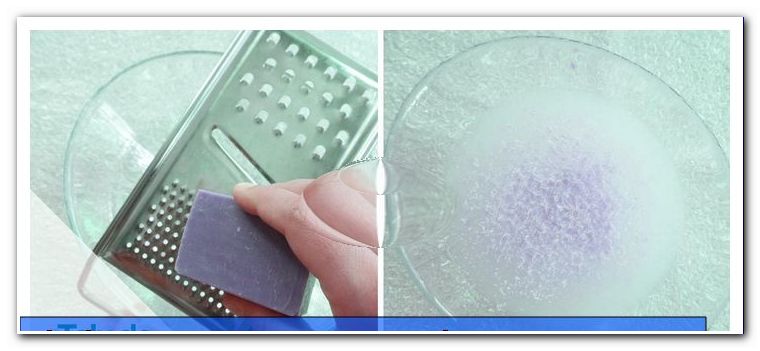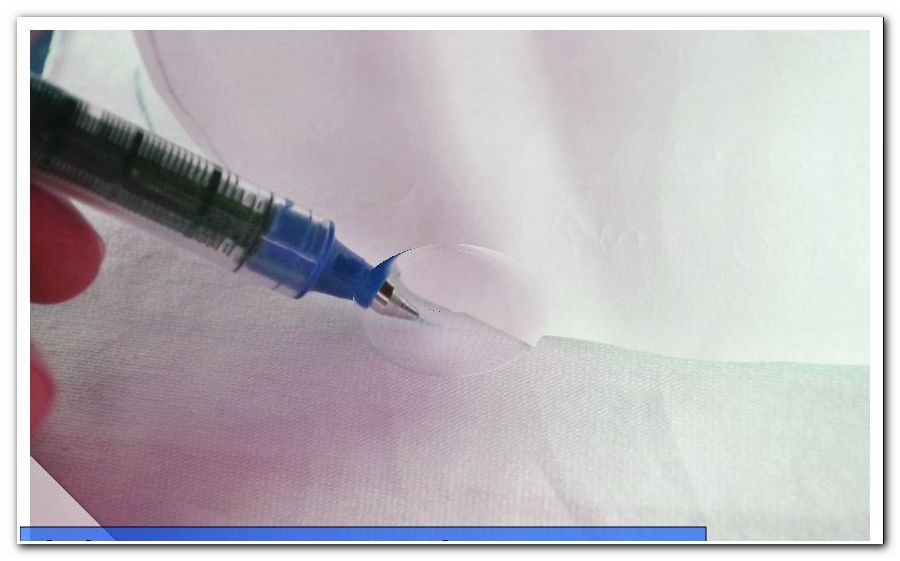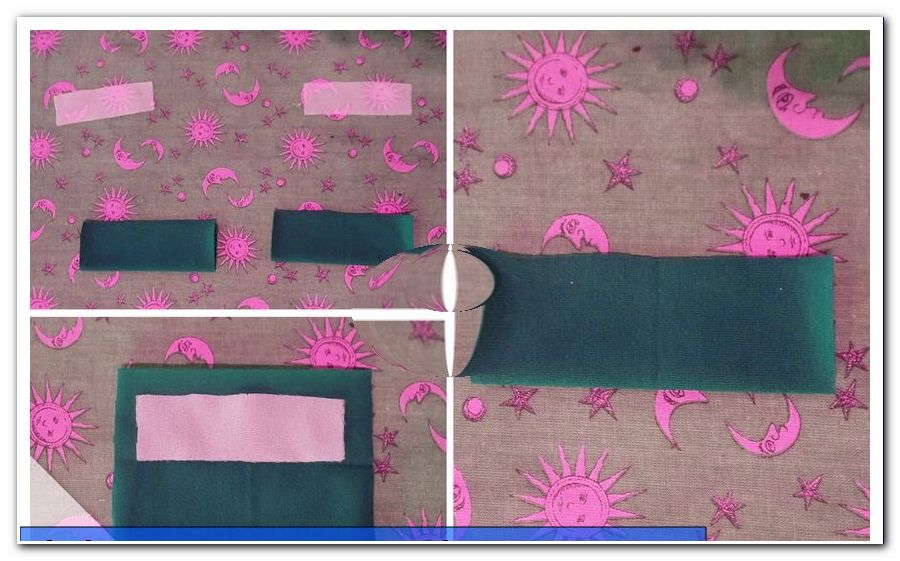Heating Knocks - What to do? - causes, tips and tricks

- Causes of heating noise
- Air in the heater
- strain noise
- Overflow valve
- Flow and return reversed
- Is a rent reduction possible ">
Heaters are in Germany and many other countries to the most important devices in the house. Whether you are a homeowner or resident, heating can not be waived, especially in winter. Heaters are very durable and are installed to work for years and it is always annoying if there is a problem with them. Often, a problem of knocking sounds that do not appear "normal" can be sudden and unpredictable. Each sound indicates another cause and must be corrected. Especially in rented residential premises, the landlord must be careful to make this mistake
Causes of heating noise
When the heater knocks and knocks it turns into an uncomfortable problem, especially if the heater is in the bedroom. Although there are other noise developments, which should not be ignored, but just a loud knock is never to be underestimated. Tapping can vary in volume, frequency, and appearance. For example, some radiators only tap softly when certain temperatures are set, while others start hammering like a blacksmith at work. The causes for this are the following:
- Air in the heater
- strain noise
- overflow
- interchanged flow and return
Often, these causes are difficult or even impossible to remedy, and it is therefore necessary to appoint a specialist. This can directly check what the problem is and how this is resolved.
Tip: As soon as you hear a knock from your radiator, you should vent it first to make sure that the knocking is not caused by it, before you consult a professional. As a result, you can not only be sure, but also save money and nerves.
Locate affected heater
Before you order a craftsman, you should first locate the radiator, which is responsible for knocking. Especially in large rooms or small apartments, where the rooms are very close to each other, often the radiators are not far apart, it is difficult to determine immediately which heating knocks. Proceed as follows:
- turn off all radiators
- let it cool completely - this is important for the review to work
- Now turn all radiators one after the other completely
- For this you should first select the radiator closest to the heating system
Above all, this step serves to inform the craftsman directly which heating is knocking. This saves you and the professional time.
Air in the heater
Excess air in the heater is often the cause of the noise. Throughout the year, air can accumulate in the heater creating a hydraulic imbalance that subsequently causes knocking because less water is available for heating. That is also the reason why your heater does not heat enough, even if you run it at the highest level. You can and should regularly bleed the heater yourself, which is really not witchcraft. The instruction:
Tool: radiator vent key (hardware store or Internet, cost: about 5 euros), bowl, cloth
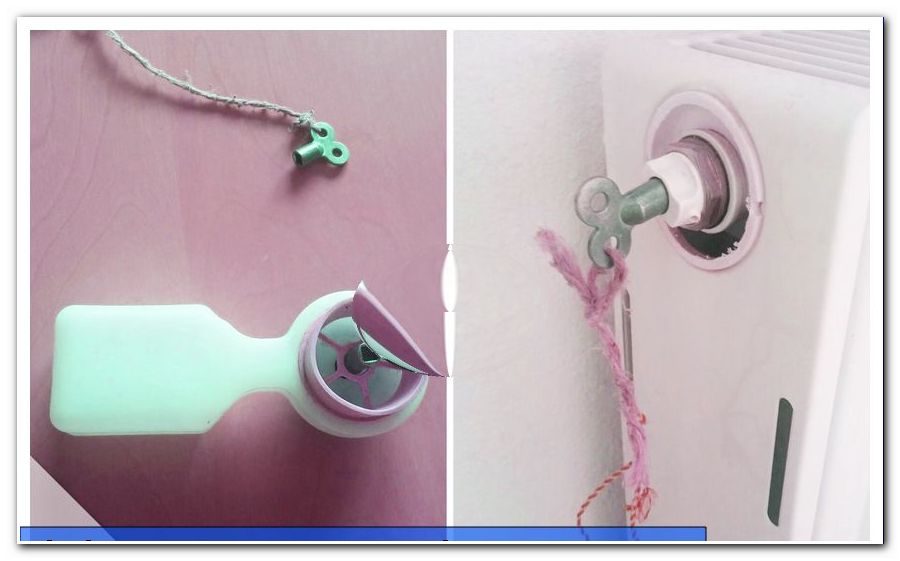
- first switch off all radiators and let them cool down
- then switch off the circulating pump that belongs to your heating system
- if you as a subtenant do not have access to the circulation pump, simply switch off the heating circuit of the apartment
- then wait an hour
- Now air collects in the radiators, which can be drained afterwards
- Turn the radiator completely open but not until it stops
- locate the vent valve
- with normal radiators this is directly opposite the thermostat
- for radiators, as they are common in the bathroom, this is in the upper part of the heater, slightly offset to the rear
- put the bleeding key on
- Hold the tray directly under the valve if water runs out
- turn counterclockwise in 1/4 to 1/2 turn
- as soon as you hear a hiss, do not turn any further as the air escapes
- as soon as the water runs out of the valve and there is no hissing sound, turn the valve back on
- the sounds should not be audible anymore
The best time for annual airing is before a heating season, for example, in the fall.
Here you can learn more about venting the heating: vent the heating
Tip: If you want to vent all the radiators in your house, they start on the lower or ground floor and work your way up. This is very important, otherwise there will be another hydraulic imbalance.
strain noise
Expansion noise of radiators is a common cause of a heater that knocks. Since when installing the heating pipes they are fixed within the walls, it may happen that the fasteners are set too tight. If the hot water flows through the pipes, the pipes expand. However, since the pipes can not expand enough, there is the unpleasant knocking noises, which occur immediately when the heater is turned on. Also, the strain sounds caused by the following causes:
- Tubes are not suitably mounted in ceiling and wall ducts
- Hot water pipe is too close to the cold water pipe
This can not be determined by the private individual, but only by a specialist. You yourself can not fix the cause of the noise as they are directly related to the piping. Often the walls or ceilings have to be opened and the pipes have to be re-laid.
Overflow valve
The overflow valve can also cause the noise. It regulates the pressure inside the heating system and if it is not set correctly or is missing completely in some houses (often in very old buildings), it will start to vibrate as soon as the heating is switched on and the pressure is too high. These vibrations then pass through the pipes as an audible knock in the rooms of your living spaces. The operation as follows:
- Overflow valve is located between the return and flow of the heating system
- There is a pressure difference between the two returns
- the overflow valve compensates for this pressure difference
- if the valve was set incorrectly to the pressure difference, it comes to the vibrations
Since the overflow valve is also a component within the heating system, it must be checked or installed by a specialist. The valve can also break, for example due to wear, and can no longer function properly, which also causes the heater to knock.
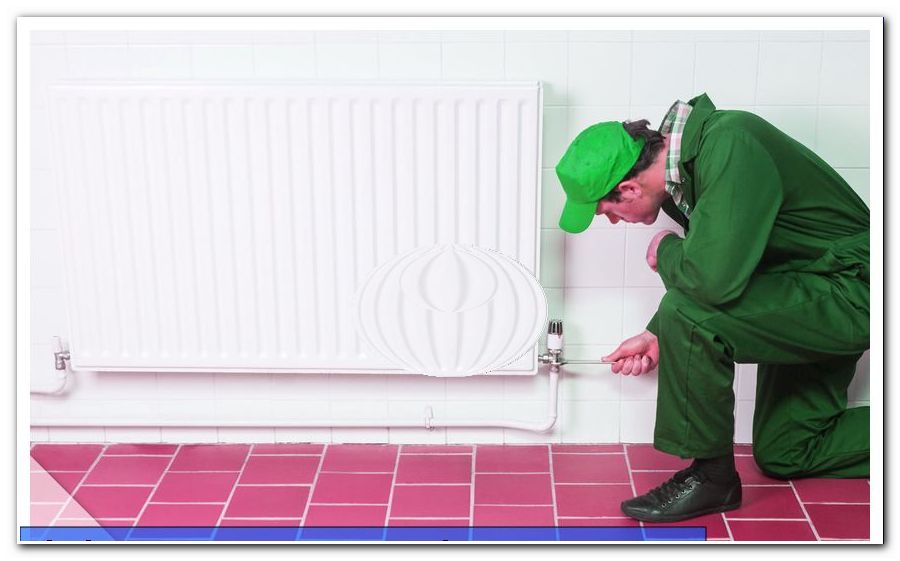
Flow and return reversed
Heating systems are complicated pipe runs, which can lead to problems even with the smallest inaccuracies. The knocking of the radiator can also be in many cases at reversed supply and return connections during installation. You can easily check this if you do the following:
- turn off the radiators
- let it cool completely
- turn on the heater again
- pay attention to which tube is heated
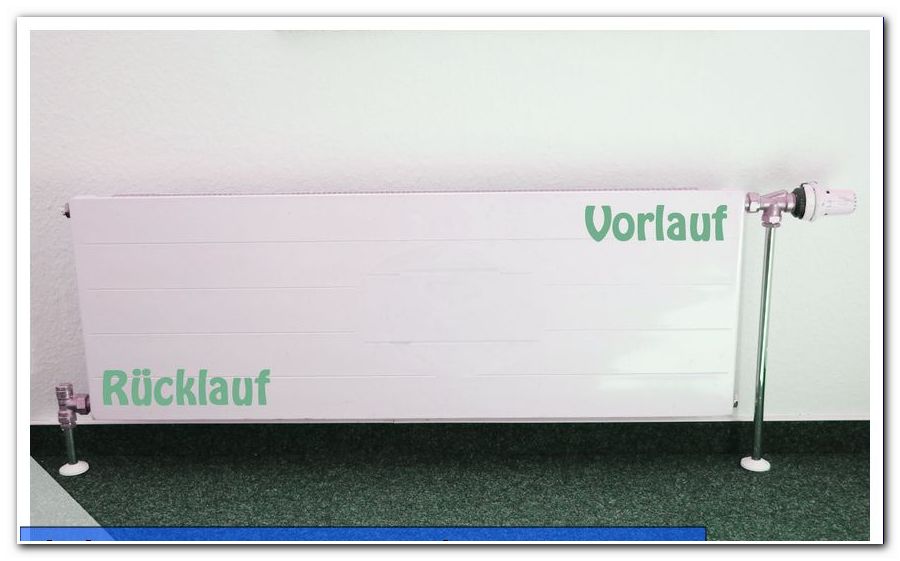
The flow is the pipe, which attaches to the top of the thermostat and carries the hot water into the heater, while the return sends the used water back. If the return is warm first, the connection has been reversed. If this is the case, you must install a thermostatic valve in the reverse flow direction in the water circuit of the heating system. This regulates the flow direction and thereby eliminates the knock.
Is a rent reduction possible ">
- as soon as knocking occurs, vent the heater
- if knocking stops, contact owner
- Landlord must order craftsmen, check the heating and have repaired
- while the landlord from the tenant set a deadline
- If this is missed, a rent reduction can be applied for
- this is 75 percent of the square meter of the bedroom or infested room
- Rent reduction is especially possible in bedrooms
Note: Intermittent noise of the heating is no reason for a rent reduction.





